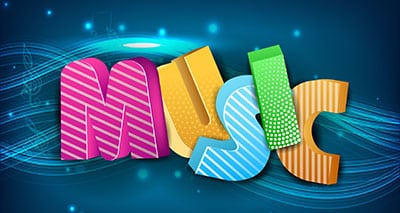How to Add Music to Your Homeschool Program

For the Not Necessarily Musically Inclined Parents
You don’t have to have perfect pitch or the ability to play a musical instrument to add music to your homeschool program. Sure, it helps to have some musical talent, but it isn’t a necessity. A bonus is that you can learn about music along with your children.
Top Tips For Adding Music to Your Homeschool
Studying music isn’t only about learning to play instruments. There are three main topics of music study for homeschooling parents to consider:
- Study Music History and Appreciation
- Learn to Play a Musical Instrument or Sing
- Acquire Music Theory Basics
1. Music History and Appreciation
The easiest topics for the non-musical parent to teach are music history and appreciation. Learning about a composer’s life, studying the history of the time, and listening to musical compositions brings history and music to life. It is very easy and saves teacher time to multi-level teach to all your children.
- Focus on an era or study the works of a variety of composers who have a variety of styles.
- Add depth to your child’s history course by exploring the music and musicians of the era.
- Try Music History Curriculum or Color the Classics.
- Read biographies of famous musicians or visit the music history section at your local library.
- Supplement your history courses with a study of music of the time period.
2. Learn to Play a Musical Instrument or Sing
My mother, who was an excellent pianist and organist, always said if you learn to play piano, then you can learn any other instrument easily. It is great advice for the child who is gifted with musical talent. Each of our children took piano lessons—some for a year or two, some through high school into college. I’m happy they know the basics. They can do more in music if they have the desire.
Here are a few options for learning to play an instrument or to sing that can count for homeschool music.
- Joining a choir is a great way to learn to sing decently.
- If your church puts on a musical Christmas play, then it counts for homeschool music if your children participate.
- Join a city youth choirs and/or youth orchestras.
- Homeschool support groups with enough families often start a homeschool choir group.
- Some school districts allow homeschoolers to take instrument lessons at the school.
- Check out the music section at your local library!
If your child turns out to be gifted vocally or musically, then private instrument or voice lessons are always an option.
- Ask family and friends or check your local music store to recommend qualified instructors.
- It’s also an opportunity to trade talents with a musical homeschool friend who teaches. Perhaps you can trade teaching another subject for music lessons.
- Try Worship Guitar courses.
3. Acquire Music Theory Basics
Learning music theory is a must if your homeschool student is interested in pursuing a music major or wants to play with your church worship team.
- Some music theory is included in private music lessons, but it’s always good to have a separate music theory course.
- Did you know that many colleges offer scholarships for music majors as well as students in other majors who are willing to participate in the college choir or orchestra?
- Everything your student can learn about music theory before college will make music classes easier. Placing out of a remedial music course that doesn’t count towards graduation saves on tuition costs!
- See our Music Theory Curriculum on Clearance.
Sing a New Song!
Go ahead and add some music to your homeschool!
Blessings,
Harriet Yoder

